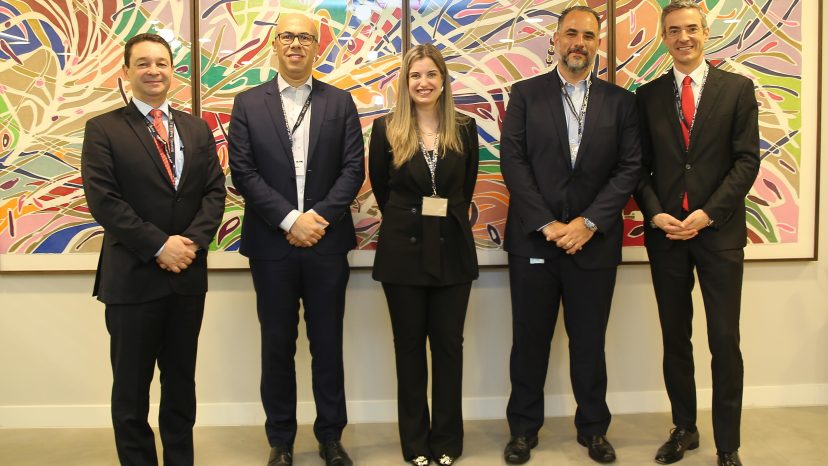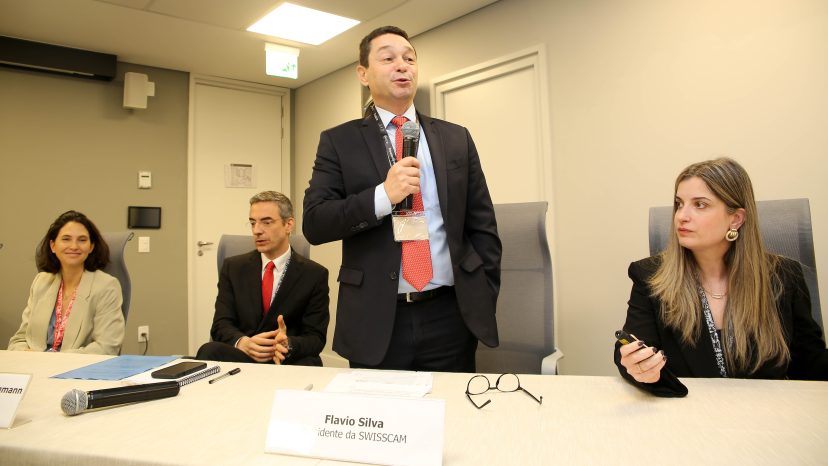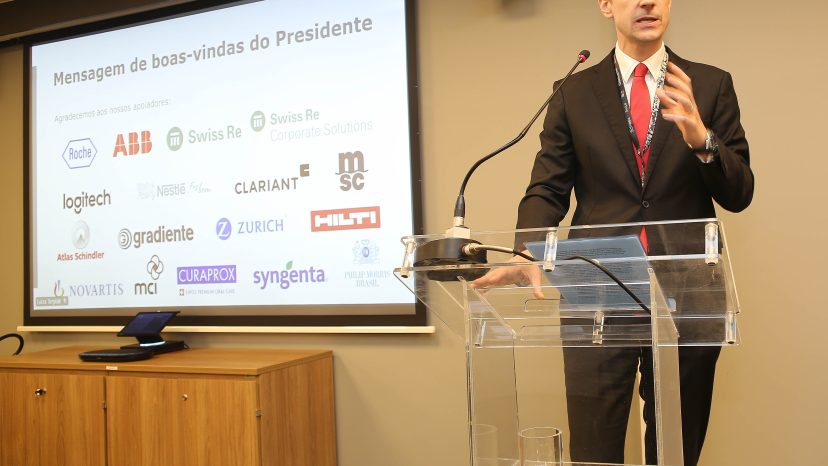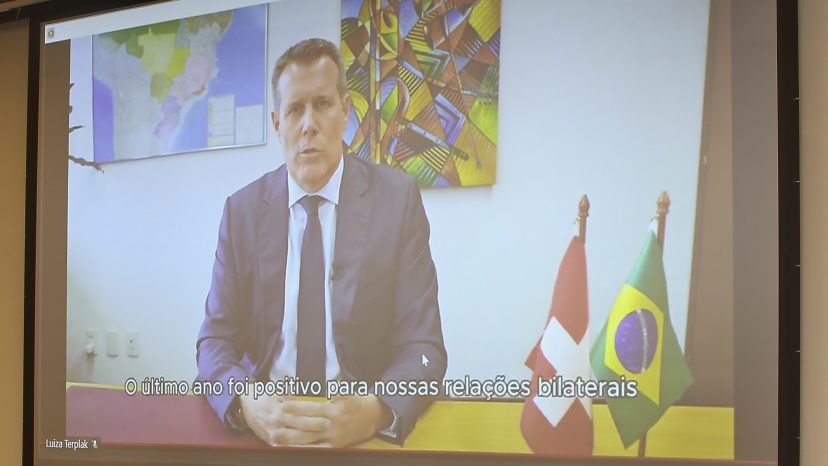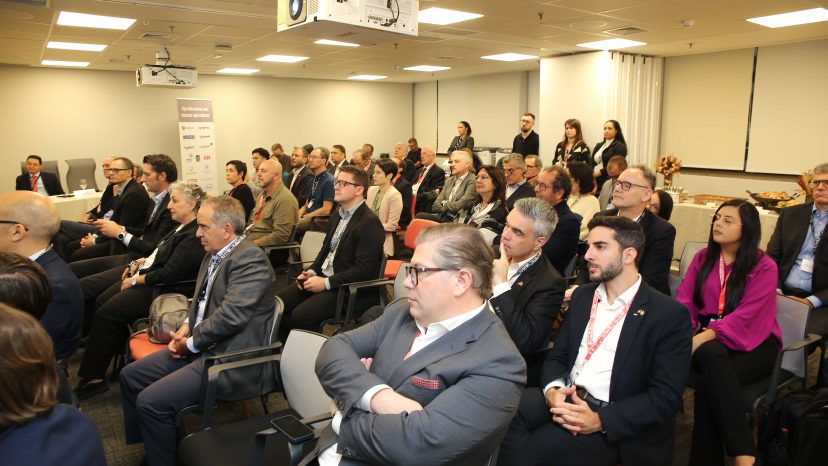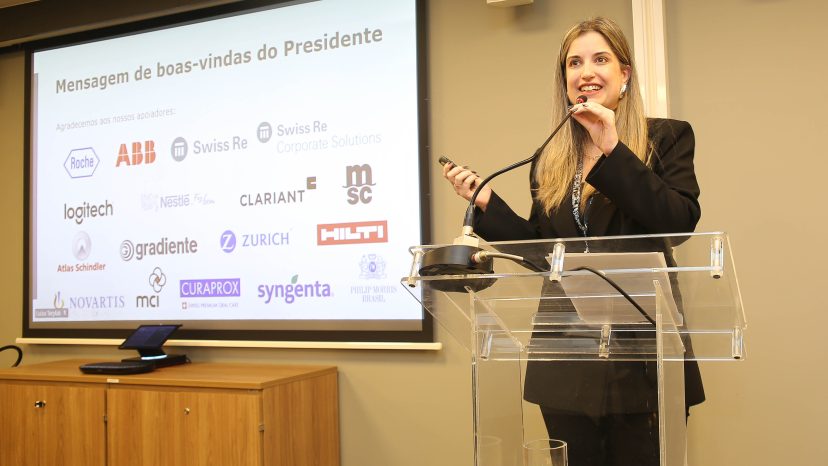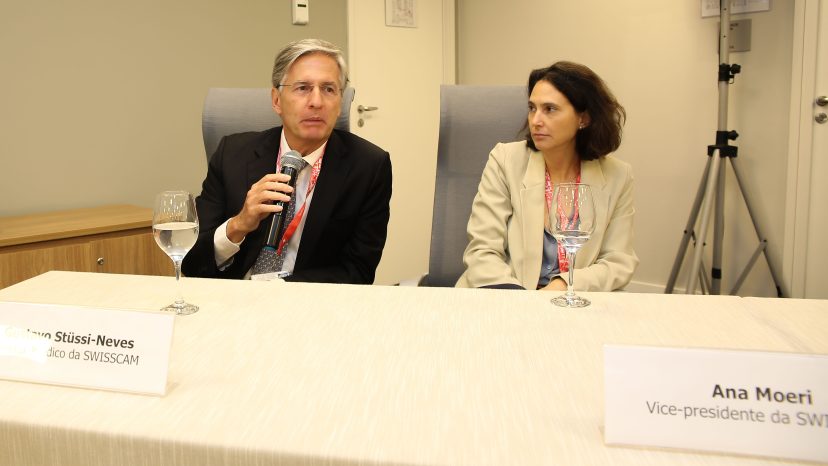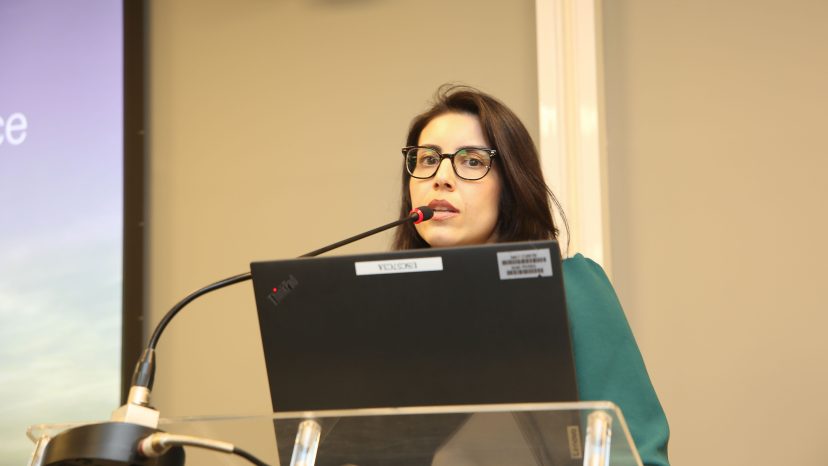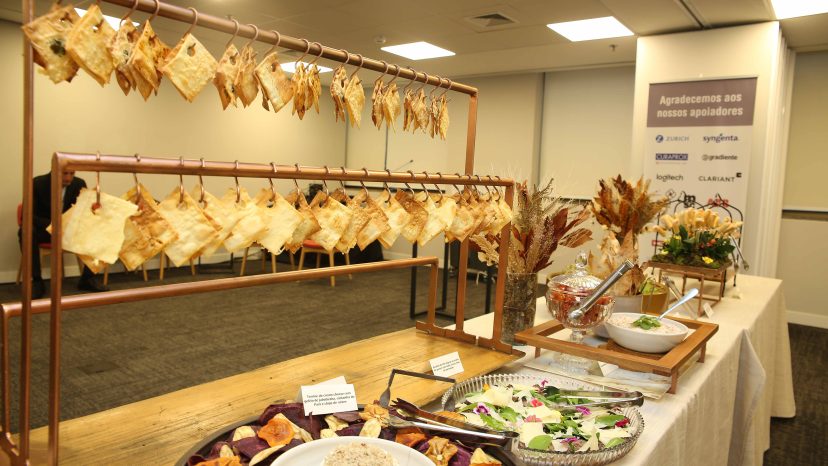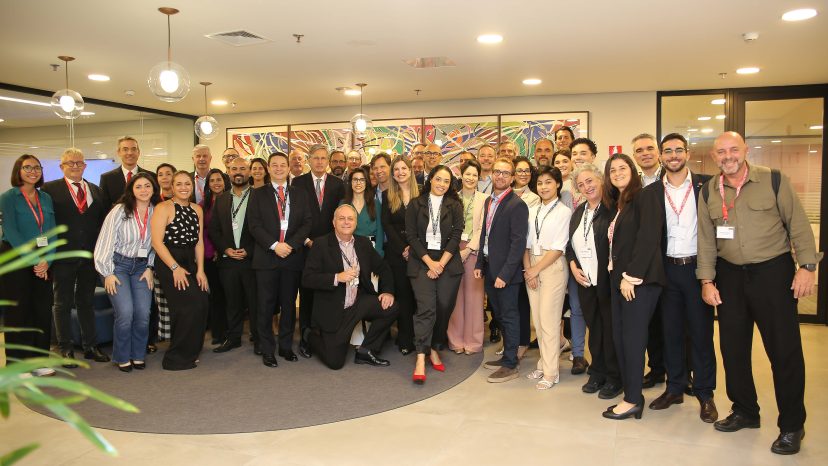On March 27, 2024, the Ordinary and Extraordinary General Meeting of SWISSCAM was held in the Swiss Re auditorium in São Paulo.
The President of SWISSCAM, Flavio Silva, opened the event by thanking all members, especially Swiss Re, which has just upgraded to the Gold membership category, for opening the doors to holding the event and the support of members Gold: Roche, Nestlé, Atlas Schindler, Zurich, ABB, Clariant, Novartis, Syngenta, Curaprox, MSC, Philip Morris, MCI, Hilti, Gradiente, Logitech and Swiss Re. He also thanked the presence of Consul General Pierre Hagmann and the volunteers who dedicate themselves to SWISSCAM: directors, advisors and committee coordinators.
Flavio highlighted that the year 2023 was positive, despite contrary expectations, and gave credit to the SWISSCAM team.
The floor was then given to the Consul General, Pierre Hagmann, who congratulated SWISSCAM for the high-quality events and activities that contribute to Switzerland’s visibility and good image of excellence in Brazil. He thanked the fruitful partnership on behalf of the Swiss representations in the country. The Consul cited two important initiatives: the first is the organization, in collaboration with the Swiss Embassy and in partnership with the Oswaldo Goeldi Cultural and Artistic Association, of the exhibition “The Swiss-Brazilian Legacy in the Amazon”, created to celebrate Switzerland’s support for Amazon Fund and which is currently open at the Catavento Museum. After being shown in Brasília, Porto Alegre and, now, São Paulo, the exhibition will move on to Florianópolis and Rio de Janeiro, still in 2024, ending its tour in Belém do Pará, on the occasion of COP30, in 2025.
The second initiative is the Infrastructure Forum On the Road to Net Zero, at the end of October, with the aim of opening up more business opportunities for Swiss companies in Brazil.
The Ambassador of Switzerland, Pietro Lazzeri, participated remotely, highlighting that the last year was positive for bilateral relations. In particular, the Embassy has worked in 3 main areas: economic and commercial relations, science, innovation and research, and sustainability. He mentioned the visit of Federal Councilor Guy Parmelin, the Swiss Minister of Economy, and the largest economic and scientific delegation that has ever visited Brazil. Also important was the visit by the president of the National Council Martin Candinas and the parliamentary delegation, which included a presidential meeting. The prospects for 2024 are also promising. The year began with significant participation by the Brazilian delegation at the World Economic Forum in Davos. As for the EFTA-Mercosur agreement, the objective is to conclude negotiations this year. To this end, a parliamentary delegation was in Brazil recently to support the progress of negotiations. This year Brazil holds the presidency of the G20, of which Switzerland participates in more than 30 meetings. The embassy has already started preparations for COP30 in the Amazon, developing an environmental and sustainability agenda. Several high-level visits will be held here in Brazil and Switzerland.
Finally, the Ambassador cited cooperation with the private sector, which is fundamental to promoting our interests and values. It is aligned with Switzerland’s new foreign policy strategy that has just been approved by the government and will also be implemented in Brazil. The opportunities are enormous in different sectors: infrastructure, energy transition, health, finance, green economy. Brazil continues to have macroeconomic stability, inflation under control and the tax reform will have to start bearing fruit. On the other hand, we also have major challenges in Brazil: bureaucracy, crime and political polarization. The embassy is committed to strengthening solid and fruitful cooperation with companies.
The Executive Director, Mariana Badra, continued the event by presenting the activities carried out in 2023 and the launch of the Annual Report, the focus of this edition was infrastructure and featured images from Switzerland, as well as an article by Frederico Turolla from Pezco Economics on Brazilian infrastructure . Mariana also presented the financial result for 2023, the composition of the board, the budget for 2024 and the planned activities.
Legal Director Gustavo Stüssi led the formalities of approving the accounts and electing the board, with the entry of new members: Jairo Rozenblit (Logitech) as Director of Infrastructure, Data Processing and Information Technology; Eugênio Staub (Gradiente), Lorice Scalise (Roche), Oliver Moesgen (Hilti) and Sven Feistel (Zurich) as Advisors. The Extraordinary Assembly also decided to update the chamber’s statute.
Shortly after the Assembly meeting, Caroline Cabral, senior economist at the Swiss Re Institute, gave a lecture to members on the theme “Brazil’s Economic Perspectives: Maintaining Resilience Amidst Global Change”.
Caroline states that today it is still not possible to look to the data and speak clearly that deglobalization is happening. But it is happening and cites terms like friendshoring and new-shoring. Strategic decisions by government and companies are being made, but it will take time for these policies, especially those of the American government, to take effect.
The pandemic ended an economic cycle that began in the 1990s with the opening of the Chinese economy, the end of the cold war and the internet boom, declining from 2010 onwards. Now, a new cycle begins, but we don’t know where it will arrive. But two factors will certainly be part of it and which are the main message of this talk: they are the letters “D” and “R”. The first represents five mega trends: demographic decline, deglobalization, decarbonization, digitalization and increasing public debt. The second refers to resilience, the ability to absorb shocks.
Caroline cited data on global growth that has remained stable, with a forecast of growth of 2.5% in 2024 and 2.7% in 2025. The disinflation process should continue in a gradual and volatile manner with upward risks due to wage growth and the persistence of inflation in services. Therefore, central banks should cut interest rates cautiously.
The level of uncertainty today remains high. The risks involve monetary policy errors, geopolitical tensions and elections, especially the presidential elections in the United States.
In relation to Brazil, the country’s economy surprised positively last year. The initial expectation was for almost zero growth, of 0.5%, but it ended up at 2.9%, despite high interest rates. Strong agricultural production and a more robust job market drove this growth, but it is expected to lose momentum in 2024, with growth close to 2%, which is currently the long-term trend in the country.
Still, Caroline states that her vision for the Brazilian economy has never been as positive as it is now, thinking since 2011. But, to improve this growth, structural reforms need to be accelerated. The 3% inflation target is still far from being achieved, which is the Central Bank’s main objective with monetary policy.
Global long-term interest rates are expected to remain higher over the next ten years than they were in the ten years before the pandemic due to several factors: higher inflation expectations, macroeconomic structural changes, greater volatility.
As for commodities, there is currently low pressure on prices due to an improvement in supply and also weaker economic growth. At the same time, there are factors that can lead to an increase in prices, such as in the case of oil, due to Israel’s conflict with Hamas. Other factors are weather events and other global market disruptions.
In terms of sovereign risk classification, Brazil was upgraded last year by two agencies due to the improvement in the economic environment and the progress of reforms in the country. But fiscal challenges are likely to persist. There is great doubt as to whether the government will be able to achieve the fiscal target.
The Swiss Re Institute developed the Resilience Index in 2019, which assesses the capacity or ability of an economy to absorb or minimize economic losses after a shock such as a pandemic, war or natural disaster. It is divided into an economic index and another related to the contribution of the insurance sector to the financial stability of societies and organizations. Find out more at www.swissre.com/institute/
The results of the estimates show that, although the level of resilience has returned to pre-pandemic levels, it remains below what it was before the 2008 global financial crisis.
Climate change, another area of study at the institute, has currently had a greater impact on the economy, considering economic growth and urbanization itself.
The event concluded with a standing lunch for members, who upon leaving received gifts from our members Curaprox, Lindt and Artistik/Caran d’Ache.
Photos: Lorna Lee

